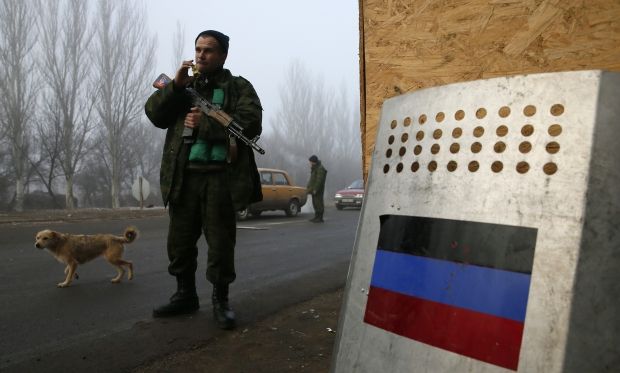
Denis Pushilin, the official from the so-called “Donetsk People's Republic” said on Tuesday the pro-Russia separatist territory was open to compromise on the issue of local elections in Donbas — a key sticking point in the implementation of the Minsk agreement, Stratfor reports.
Pushilin said his side “has to make concessions” at the next meeting of Contact Group in Minsk scheduled for Wednesday. However, he urged the official Kyiv to do so as well, concluding that "something may work out then."
Although such statements may be interpreted as empty rhetoric, yet there are several reasons to take the “DPR” leader’s statement more seriously than usual, all of which are tied to recent developments related to the broader negotiations between Washington and Moscow.
One such development was a surprise meeting between U.S. Assistant Secretary of State for European and Eurasian Affairs Victoria Nuland and Russian presidential adviser Vladislav Surkov on January 15. The talks have been the focus of much media speculation.
“Several pundits and analysts have claimed the meeting produced a "secret deal" between the United States and Russia over the Ukraine conflict,” reads the report, adding that such theories should be treated with skepticism.
The Nuland-Surkov talks did coincide with other developments that could be interpreted as signals that both Russia and the West want to break the negotiation process out of its current stalemate. For instance, Moscow appointed a levelheaded security heavyweight Boris Gryzlov as Russia's new representative to the Minsk contact group talks, which may indicate that Moscow “is taking this format of negotiations more seriously and perhaps more constructively than before.”
Meanwhile, the European Union has been more vocal in asking the Ukrainian government to make constitutional changes that would grant greater autonomy and local decision-making to the areas currently under separatist control.
“Another factor that could be raising interest in finding a compromise over Ukraine is the state of the Russian economy,” reads the article. “The drop in oil prices has hit the Russian economy hard.”
Getting the sanctions lifted becomes more important as Russia's budget revenues shrink and the Russian deficit and ruble volatility grow. “This situation could be the most important factor driving the recent uptick in diplomacy between the United States and Russia, especially since some European countries, including Germany and Italy, want to move toward a deal that would end a volatile conflict on the European Union's eastern periphery and lift the sanctions that have harmed their economies,” according to Stratfor.
Although these signs could indicate progress toward a deal over Ukraine, the remaining obstacles are extremely difficult to overcome.
The Minsk agreement has been subject to different interpretations by Ukraine and the West, on one hand, and the separatists and Russia on the other.
“In Ukraine's view, Russia must relinquish control of its border with the separatist territories and allow OSCE observers to access those territories before it makes any political concessions,” reads the report. “Meanwhile, Moscow and the separatists see constitutional changes and greater autonomy for Donbas as prerequisites for serious movement on the security front.”
Read alsoParties to the conflict“It is this difference in interpretation — along with Russia's underlying geopolitical imperative to establish a buffer space in the former Soviet periphery and the U.S. imperative to deny Russia that buffer space — that so far has prevented a resolution to the nearly two-year conflict,” the authors say. But some signs are emerging that “there could be a greater willingness to break the current deadlock on more sensitive issues.”
“Furthermore, potential movement on the Minsk agreement could facilitate military coordination in Syria, especially with Washington working to mediate between Russia and Turkey,” the article reads. Stratfor sources have indicated that the United States probably will be carrying a message from Russia when Nuland and U.S. Vice President Joe Biden visit Istanbul later this week.

